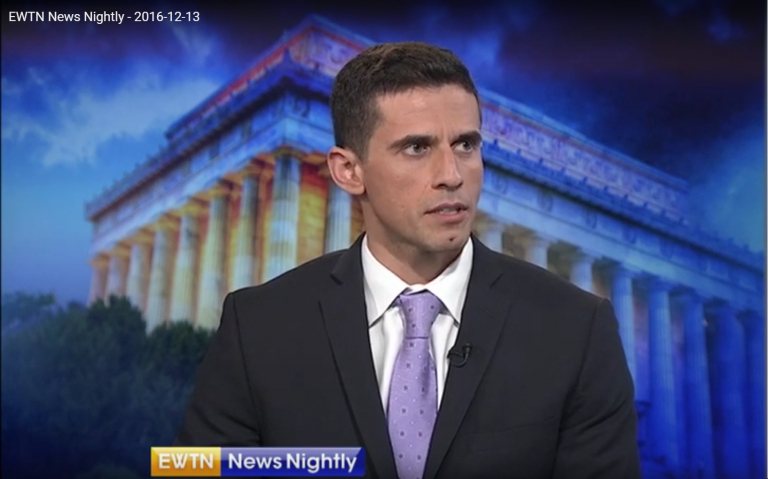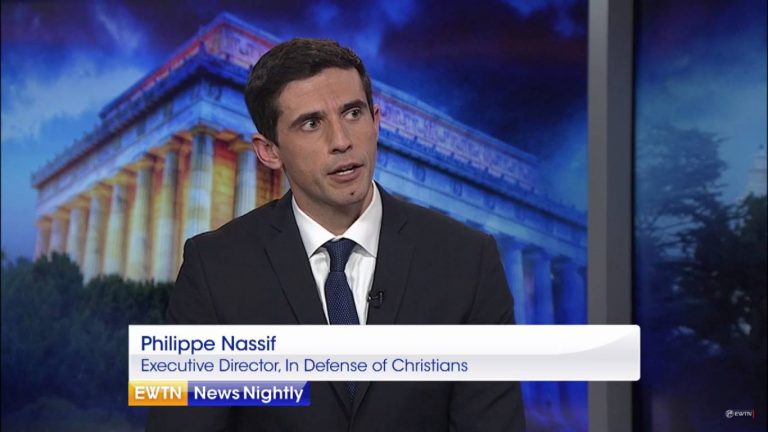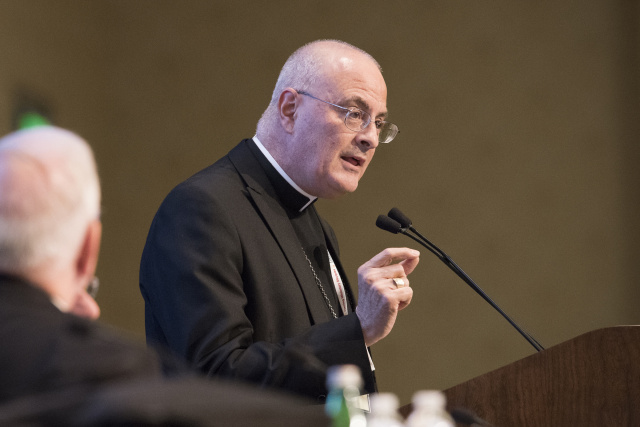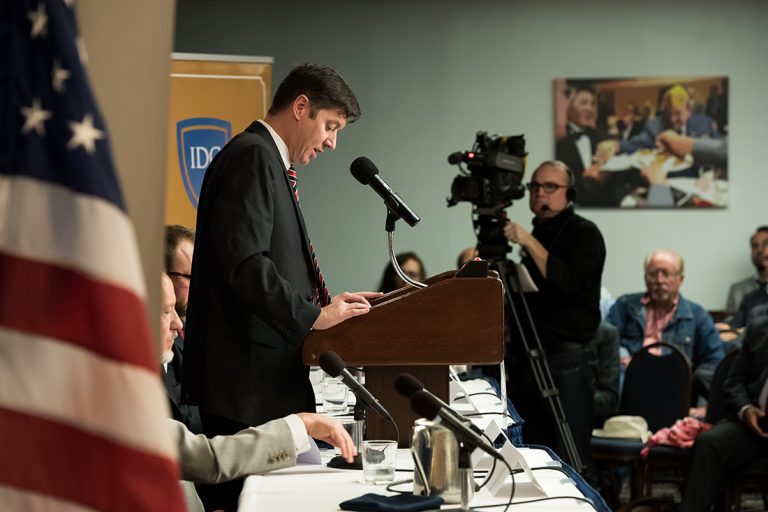The ability of Syria and Iraq’s minorities to rebuild their communities in the post-ISIS landscape will depend very much on the political situation in these countries, according to analyst Yousif Kalian.
SINCE THE SYRIAN regime, Syrian Democratic Forces (SDF) and U.S. coalition airstrikes have driven ISIS out from its several strongholds, the heyday of the so-called caliphate is nearing its end. With Raqqa and Deir el-Zour [Deir Ezzor] in Syria and Mosul and Anbar province in Iraq liberated, the question that looms large is the fate of religious minorities in Iraq and Syria.
Even before ISIS, minorities in the two countries faced massive hurdles, including institutionalized discrimination, de facto social and employment restrictions and rising emigration rates. Since ISIS came onto the scene, these issues have been exacerbated. The ability of these vulnerable minority communities to rebuild, post-ISIS, will depend very much on the political situation in these countries.
The Enduring Challenge of Peace in Syria
Even with ISIS largely out of the picture, the ongoing Syrian conflict has layers of complexity that make peace a distant dream for too many. During this conflict, competing powers have vied for the loyalty of various minorities in Syria, such as the Shia, Alawites, Christians, Druze and others.
Syria’s Muslim minority communities, namely the Shia, Alawites and Druze, have struggled during the civil war under pressure to pledge loyalty to the Syrian regime and act as “good puppets.” Uncomfortable with the presence of Salafi and Islamist groups among the rebels fighting Bashar al-Assad, these communities have felt the need to choose between two types of oppression: that of the regime and that of Islamist rebel groups. Many believed they had no choice but to work with the regime, particularly if they lived in regime-held areas. The Alawite community, in particular, was pushed deep into the Assad regime’s arms over fears they would be deemed complicit in the regime’s crimes since it was headed by an Alawite.
Since the onset of the revolution, Christians have been struggling to survive in Syria, with only 800,000 of a previous 2 million-strong population remaining in the country. They continue to be threatened by various Salafi and Islamist forces, and a regime that exploits their cause to gain international support. Nine different Christian militias currently exist in Syria, and they are divided, in their loyalties, between the Kurdish-led Syrian Democratic Forces (SDF) and the Syrian regime. The SDF uses Christian militias to help take over mixed Kurdish-Arab towns, while the Assad regime uses them to win support in areas with large Christian populations. Both sides present themselves as “defenders of Christians” for propaganda purposes, but have been behind attacks against Christians and pushed most of them to emigrate from the country.
While there is a desperate need for a political settlement in Syria, any such agreement must take the rights and concerns of Syria’s minority groups into account. A future peace settlement will need to address systemic oppression and institutional bias and highlight Syria’s diverse society as part of post-war Syrian identity. In addition, holy sites that were desecrated or destroyed must be rebuilt and celebrated as part of Syria’s national heritage.
Semi-Autonomy and National Reconciliation in Iraq
Compared to Syria, the situation for minorities in Iraq is better, though there are still challenges. For over a decade, after the U.S. invasion, informal militias took advantage of the security vacuum to gain power and money. These militias, like the Asaib Ahl al-Haqq and the Badr Organization, have often been backed by Iran and contributed further to a sectarian political atmosphere in Iraq. These militias have, for example, stolen the homes of thousands of Christians, Yezidis and Mandeans in Baghdad, who have received no government support in securing the return of their properties. In order to ensure the survival of minority groups, like Christians, Yezidis, Mandean-Sabeans, Shabaks, Yarsans and Kakais, in the country, these militias must loosen their grip on the country. In their place, Iraq needs a mix of good federal governance, localized security initiatives and a comprehensive national dialogue, in order to address the precarious situation facing many minority groups.
Micro-minorities in Iraq, like the Mandean-Sabeans, Kakais and Yarsans, can only survive in an Iraq where a nonsectarian military and police force exist and the rule of law is respected. The same goes for Christians in Mosul, who went from being a sizable minority in the city to a micro-minority after ISIS took over the city in 2014. The Iraqi government needs to ensure these communities are protected, both in terms of security and legal rights.
Recent movements to ban the sale of alcohol, to allow nine-year-old girls to be married and to permit hate speech to go unpunished all create an environment in which minorities feel targeted in Iraq. Christians are the only minority group in the country to sell alcohol so the new prohibition is seen as a direct attack on their livelihood. The proposed decision to allow nine-year-old girls to marry would seem to be a victory for strict and narrow interpretations of Islam and suggest to minorities that Islamic theology supersedes civil and international law.
For the Yezidis of Sinjar and the Christians in the Nineveh Plains in Iraq, semi-autonomous provinces need to be established. For decades, both groups have been underrepresented in the larger, Sunni-majority Nineveh Province. Allowing them to police their own areas, teach their own history and language and govern themselves in a province where they are the majority may ensure that they can defend themselves, if ISIS returns in another form.
Finally, to ensure their safety and protection going forward, minorities in Iraq need both a national dialogue and government-sponsored counterextremism efforts. Any national dialogue would need to address the egregious crimes ISIS and its supporters committed against minorities. Rumors have been swirling for a few weeks in the country that the United Nations Assistance Mission for Iraq would establish a roundtable to deal with national reconciliation in the country, but so far nothing has been made official. As for counterextremism initiatives, the Iraqi government introduced a bill for Mosul’s reconstruction that works to create programs to counter extremism and develop a new, more inclusive sense of Iraqi nationalism and religious moderation.
On the ground, it seems efforts toward greater inclusion are already taking root. During a recent Friday sermon in Kirkuk, a Sunni cleric described Christians as “infidels” and called on Muslims not to take part in Christmas celebrations or congratulate Christians on the occasion. In response, the Sunni Endowment in Kirkuk fired the cleric. During Shiite holidays in Iraq this year, Iraqi social media was filled with pictures of minority groups holding signs welcoming pilgrims to Karbala and handing out food. Recently, in the Chaldean Catholic town of Tel Keif, Muslims from Mosul arrived to repair a church that had been partially destroyed by ISIS. In Mosul, itself, there are reports of Muslim neighbors fiercely defending Christians who have returned to the city.
These cross-sectarian signs of goodwill toward minorities in Iraq might be the exact thing these communities and the country need to rebuild.
A New Beginning?
In both Syria and Iraq, enormous challenges are facing members of religious minorities who were uprooted from their homes and targeted for genocide and social discrimination on account of their religion. These vulnerable communities are part of what makes the Middle East a unique place and their extermination from the lands they have lived on for thousands of years would be a tragic loss for the region.







